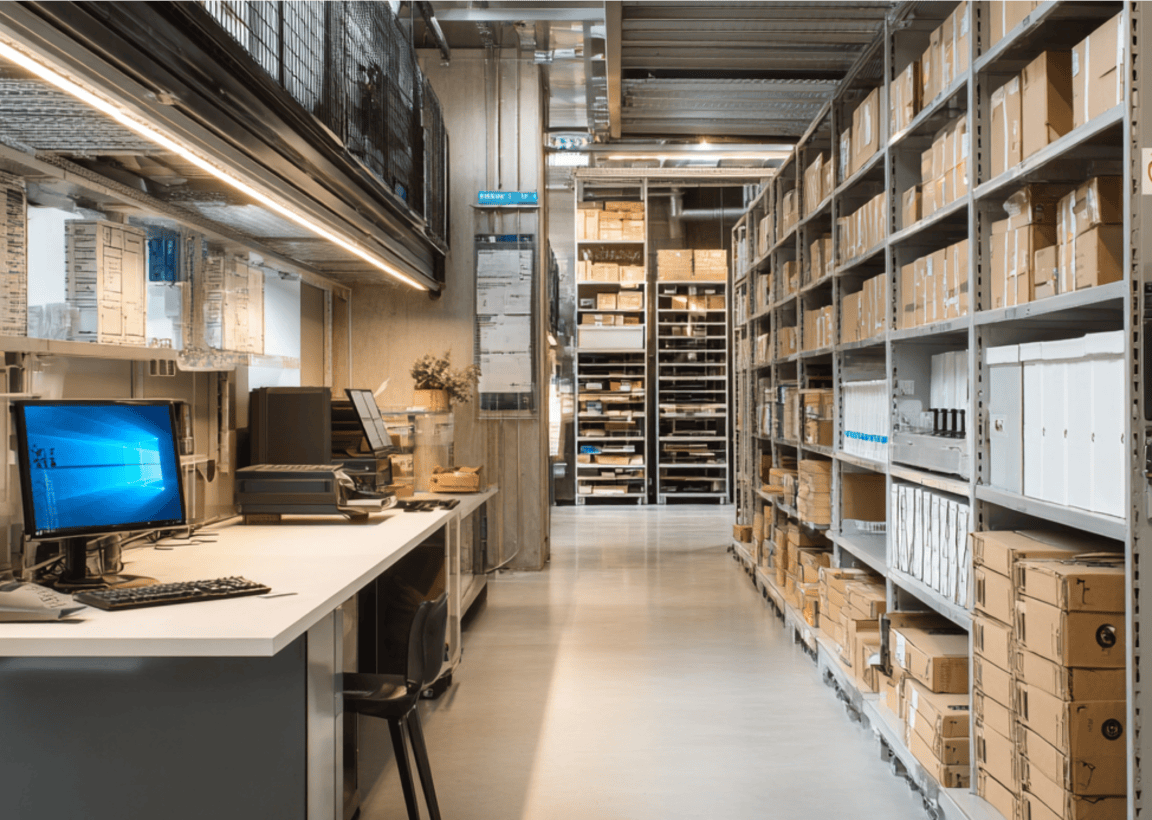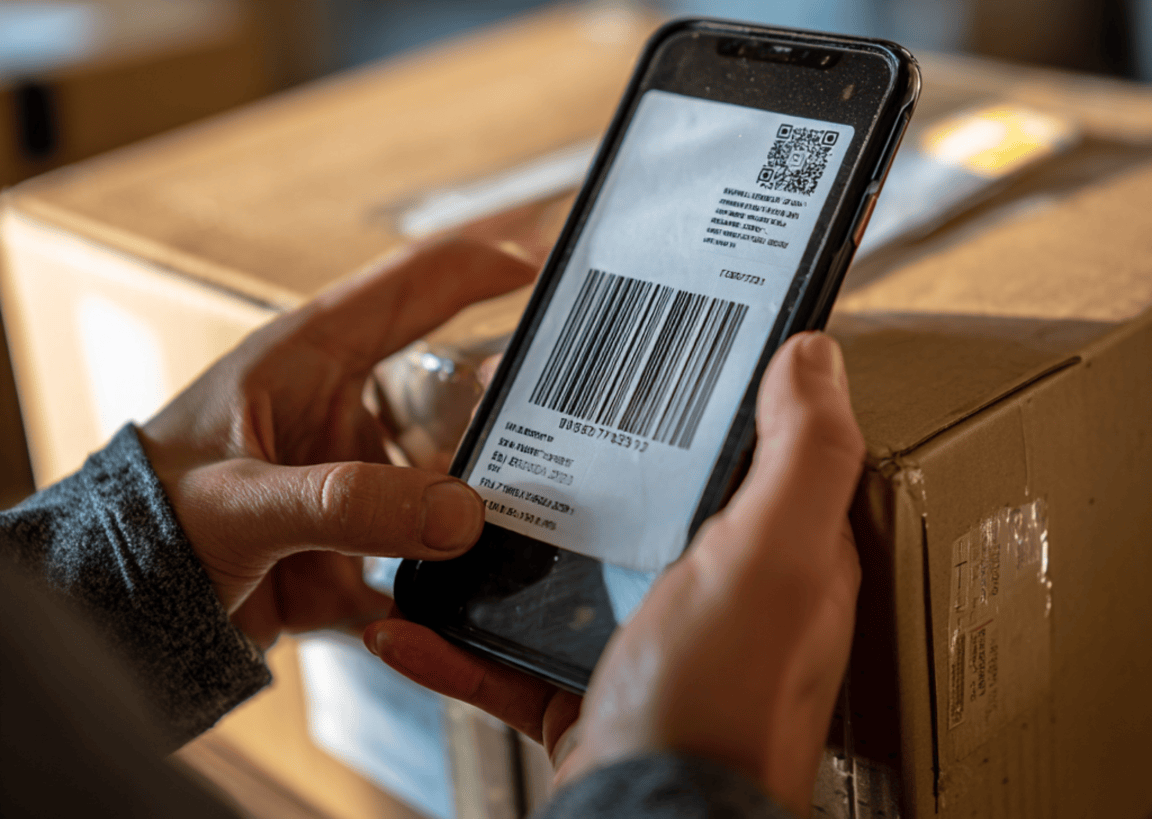What is Parcel Management?
Parcel management is the systematic process of overseeing and optimizing the entire lifecycle of a package, from its dispatch to its final delivery. With the e-commerce boom putting immense pressure on supply chains, effective parcel management has become a necessity for any organization handling a high volume of goods. By 2027, global parcel volume is projected to reach 256 billion, a staggering figure that represents a significant increase in the sheer scale of deliveries worldwide.
This comprehensive process involves a sophisticated coordination of various activities, including tracking, sorting, documentation, and communication. It goes far beyond simply handing off a box to a courier or receiving a package.
As consumer expectations for fast, reliable, and transparent delivery grow, manual methods can no longer keep up. The pressure to reduce costs, minimize lost packages, and enhance the customer experience has made modern parcel management a critical function, ensuring efficiency, security, and satisfaction for all parties involved.
What Are the Biggest Challenges in Parcel Management?
Parcel management presents the following challenges:
- Handling High Volume: Manual processes simply cannot scale to keep up with the explosive growth of e-commerce, especially during peak seasons like holidays.
- Complex Carrier Contracts: Different carriers have different pricing models, surcharges, and service levels, making it difficult to find the most economical option for every single shipment.
- Last-Mile Delivery: This final leg of the delivery process is often the most expensive and least efficient, plagued by issues like traffic, failed delivery attempts, and managing customer availability.
- Managing Customer Expectations: In a world of instant gratification, customers demand real-time updates and fast, reliable delivery.
- Handling Perishable Goods:The Delivery and storage of goods that could expire quickly pose another layer of challenge in the mailroom.
What Are the Different Types of Parcel Management Solutions?

Parcel management solutions are not one-size-fits-all and can be categorized into three main types.
- Manual System: This relies entirely on human labor and paperwork. This approach is time-consuming, prone to error, and impractical for high-volume operations at the last-mile of delivery.
- Semi-Manual (SaaS) Solution: This uses cloud-based parcel management software to track and manage parcels, replacing manual logs with electronic systems. While it significantly improves efficiency, it still requires human intervention for tasks like scanning and communication.
- Automated (HaaS) System: This is a fully integrated software and hardware solution that automates the entire process from receiving to pickup. This is where the use of Advance Shipment Notices (ASN) and Electronic Data Interchange (EDI) prepares mailrooms for high-volume deliveries.
What Key Features Should a Modern Parcel Management Solution Have?
Modern parcel management solutions are equipped with a suite of features designed to automate and simplify the delivery process, including:
- Real-Time Tracking & Notifications: This provides end-to-end visibility into a package's journey for both businesses and customers, with automated updates sent via email or SMS. This transparency reduces customer inquiries and builds trust.
- Advanced Analytics and Reporting: Provides comprehensive data on carrier performance, cost analysis, and delivery success rates. These insights are invaluable for identifying inefficiencies and optimizing your strategy.
- Integrated Communication Tools: These allow for branded tracking and notifications.
- Returns Management: This is a must-have for any e-commerce business. A good system streamlines the reverse logistics process, making it easy for customers to return items, which can improve customer loyalty.
- API Integrations: This feature enables the software to seamlessly connect with other platforms, such as e-commerce stores (Shopify, Amazon) and warehouse management systems (WMS).
See a modern solution in action. Start with this interactive demo.
What Are the Benefits of Effective Parcel Management?

Adopting a modern parcel management system offers a clear return on investment.
- Increased Efficiency: By automating tedious, manual tasks, you can free up staff to focus on more productive work, streamlining your entire operation. For Vita Student, implementation of a modern system helped save about 18,434 hours per year.
- Cost Reduction: Lowering shipping costs through smart carrier selection, route optimization, and avoiding surcharges can have a significant impact on your bottom line. You also save money by preventing lost or stolen packages.
- Enhanced Customer Satisfaction: Providing accurate tracking and timely, transparent deliveries builds trust and loyalty, which can lead to repeat business. The 5x increase in parcel collection time at Lancaster University with the use of modern software contributes to a positive customer experience.
- Improved Visibility: With a centralized dashboard, you gain complete control and insight into your logistics operations, allowing you to make data-driven decisions and identify areas for improvement.
What Industries Can Benefit from Parcel Management Solutions?

Parcel management is not confined to one industry; its applications are vast and varied.
- Office: Solutions streamline internal mailroom operations and manage deliveries for employees, reducing staff workload and providing a secure chain of custody.
- Residential: This addresses the challenges of multi-tenant buildings by providing a secure way for residents to receive packages, preventing theft, and reducing the burden on property staff.
- Higher Education: Systems handle the high volume of deliveries for faculty and staff, particularly for campus mailrooms that process everything from personal packages to academic materials.
- Student Accommodation: This manages an extremely high volume of student packages, especially during the beginning and end of semesters, with automated systems that ensure secure and convenient pickup.
- Healthcare: Secure and compliant delivery is paramount. Solutions ensure a strict chain of custody for sensitive materials, medical equipment, and prescriptions.
- Government: Systems manage the secure and accountable flow of official documents and equipment across various departments and agencies, often with strict security protocols.
- Freight Forwarding: Integrating parcel management software is key to handling the "last mile" of delivery, optimizing the final leg of the journey and providing end-to-end visibility for clients.
- Warehouse: Solutions automate the inbound and outbound parcel flow, from receiving and sorting to integrating with warehouse management systems (WMS) for efficient shipping and inventory control.
- Commercial Real Estate: This provides a centralized and efficient solution for managing all deliveries for multiple business tenants within a single commercial building or complex, enhancing both building security and service offerings.
How Do You Calculate the Cost and ROI of Parcel Management?

Transitioning from a manual or semi-manual parcel system to a modern, automated solution is a significant investment that requires a clear understanding of costs and return on investment (ROI). The primary cost factors include the price of the software subscription and any associated hardware, such as smart lockers or dedicated scanners.
However, the real financial picture comes into focus when you analyze the hidden expenses of a traditional system. For example, a single misplaced package can cost a business an average of £145.50 (approximately $180), in missed revenue, customer service expenses, and a high likelihood of losing the customer entirely.
Calculating ROI involves contrasting these hidden costs with the tangible savings offered by an automated system. Let's consider a medium-sized office that receives 50 packages per day. With a manual logbook, a mailroom clerk or receptionist might spend 10-15 minutes processing each package, including logging details, notifying the recipient, and answering inquiries. At an average wage of about $18.41 per hour, that's over 10 hours a day spent just on parcel management, equating to an annual labor cost of over $42,500. This doesn't even account for the time spent tracking down lost packages.
Implementing a parcel management solution, the same office can drastically reduce that labor time. For instance, a system can log a package and automatically notify the recipient in seconds, not minutes. According to a case study on 180 Strand, an office processing over 100 parcels daily achieved an annual time savings of approximately 1,460 hours, with both collections and problem resolution becoming six times faster. These significant savings, combined with a reduction in lost parcels and the freeing up of staff for higher-value tasks, often lead to a full ROI in as little as 6 to 18 months. The transition is a tired-and-tested move to improve efficiency and avoid the compounding costs of a manual process.
When sharing parcel management metrics or operational improvements with leadership or cross-functional teams, using an AI presentation tool can help communicate results more clearly.
What Is the Future of Parcel Management?
The future of parcel management is being shaped by cutting-edge technology, such as:
- AI and Machine Learning: These technologies are being used for predictive analytics tools to forecast delivery volumes and optimize routes more intelligently than ever before.
- Sustainability: The increasing demand for eco-friendly shipping options is impacting carrier selection and packaging, with solutions helping businesses track and manage their carbon footprint.
- Hyperlocal Delivery: This trend toward on-demand and same-day delivery services is pushing parcel management systems to become faster, more responsive, and more integrated with local courier networks.
Why Modern Parcel Management is Essential
Modern parcel management transforms manual, inefficient processes into automated, cost-effective, and customer-centric operations. If you're ready to take control of your parcel management process, it's time to find a solution designed for efficiency and peace of mind. Learn more about how Parcel Tracker can revolutionize your deliveries and simplify your internal logistics today.






